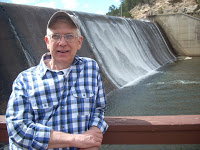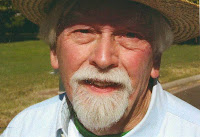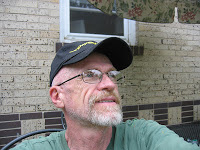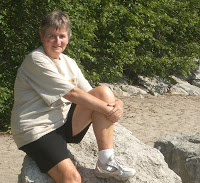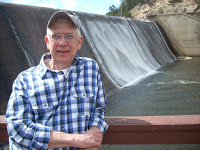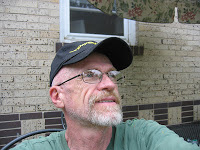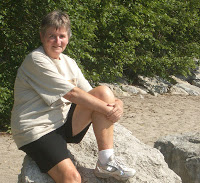dedication to queer scholarship, Duberman is deeply disappointed in the
contemporary LGBT movement, noting that for the last 20 years it has been
focused on marriage equality and repealing “Don’t Ask, Don’t Tell”. In
Duberman’s view, the gay agenda is grossly myopic and its goals of assimilation
counter the spirit of Stonewall and Gay Liberation, which sought to affirm,
rather than obscure gay differences.”
The above quote referenced from the online entity, The Slant, is from an
interview done recently with Martin Duberman. Duberman for those perhaps
unfamiliar with the name is a queer, radical activist with a very long and
impressive academic background and the author of numerous books and countless
articles. He is on faculty as a professor of history emeritus at the City
University of New York. The interview was published online June 5th, 2013 and is
commemorating the 44th anniversary of the Stonewall Riots. His most recent book
is titled The Marin Duberman Reader.
In reading the Duberman interview I found myself hearing similar ideas I was
frequently exposed to in the late 1970’s as a result of my budding relationship
with Harry Hay, life long gay activist and founder of the Mattachine Society in
1950 and very instrumental in birthing the Radical Fairie movement. It was
through contacts at the Gay Community Center of Colorado in 1978 that I was
able to connect with Harry and his partner John Burnside who were living in
northern New Mexico at that time.
An activity I was involved in during the spring of 1979, through The Center for
the week of activities commemorating the Stonewall Riots, was the 3rd annual
Lesbian/ Gay Symposium held the Saturday before the Sunday March. We were still
marching back then rather than having a pride parade or at least still hotly
debating whether it should be a “March or a Parade”.
The symposiums were part of Pride Week activities starting in 1977 and
continuing into the early 1980’s working with the support of the Center. They
consisted of a single daylong program of workshops. Presentations and
discussions were of topical interest to the LGBT community and often fairly
broad in scope. Don’t Ask/Don’t Tell was of course not even on the distant
horizon yet and marriage equality not even a figment of anyone’s imagination.
For many early LGBT activists participation in the military was not consider a
desirable pursuit for anyone gay or straight, and marriage was thought to be a
rather unsuccessful heterosexual construct meant to primarily control women and
property, definitely not something to strive to emulate.
Since I had gotten to know Hay and his loving companion John Burnside in the
previous year the awareness of his rich queer activist history led me to pursue
him as a keynote speaker at the 1979 Symposium. They were at that time both
heavily involved in the planning for the first Radical Fairie gathering that
was to take place in the Arizona desert outside Tucson later in the summer. In
personal correspondence dated 6-11-79 in typical Hay fashion he agreed to come
up for the event. Written letters in 1979 were a viable and frequently used
manner of communication and Harry was a master at writing long letters.
Regarding my request that he and John be keynote speakers he wrote: “…being
‘keynote people’ scares us. We love to rap with people but we don’t take kindly
to the old hetero-imitating formalisms of speeches or addresses.”
Though I have many pages of personal correspondence with Harry in particular I
unfortunately never saved my responses back to him. I apparently responded that
that would be fine and they came to Denver for that Lesbian and Gay Pride
weekend of 1979 and participated in several workshops at the Symposium. He
spoke briefly at the rally at the end of the Pride march that Sunday in Civic Center.
Harry with bullhorn graces the cover of the July 6, 1979 issue (Vol. IV, #7) Of
Out Front Magazine. I do not remember any of his remarks at the rally but the
theme of the march that year was “We Are Family” so I suspect he spoke to that.
Much of Hay’s thought on queers at the time focused on the three questions
originally raised by the Mattachine society; who are we, where do we come from
and what are we for? If we were to be pursuing these questions in earnest at
the time, and they are still quite relevant today, assimilation into the larger
hetero society with marriage equality and open military service were unlikely
to facilitate that exploration.
In the Duberman piece referenced earlier he describes the current “gay agenda”
focus on marriage and the military as very myopic and Hay would certainly
agree. In fact I heard Harry dismiss both as sadly hetero-imitative and nothing
we should be serious about pursuing if we were intent on getting to the root of
our difference and bringing our unique gifts and contributions to the larger
human banquet.
When Duberman was asked specifically about the influence of queer culture on
mainstream America he responded in part: “So far, I don’t think the effect of
mainstream culture has been significant, and I think that’s the fault of both
the gay movement and the mainstream, which is willing to accept and tolerate us
to the extent that we act like good middle class white people”.
If I can be so bold I would say that both Hay and Duberman firmly believe that
our real strength comes from being “outsiders”. Perhaps the potential for at
least some of the change humanity desperately needs at this juncture can come
from queer folk and that will only come about if we relish and explore our
differences as possible keys to viable solutions to our immense problems today.
Not to throw too much of a burden on us but we really do need to be in the
vanguard of a radical restructuring of the entire social order or we are pretty
much screwed both as a species and a viable planet.
How wonderful if every June we could renew out commitment to being “other” and
recommit to using our unique worldviews to tackling some of the greatest issues
we will face in the coming year.
Indiana in 1949, raised on a farm and schooled by Holy Cross nuns. The bulk of
my adult life, some 40 plus years, was spent in Denver, Colorado as a nurse,
gardener and gay/AIDS activist. I
have currently returned to Denver after an extended sabbatical in San
Francisco, California.

